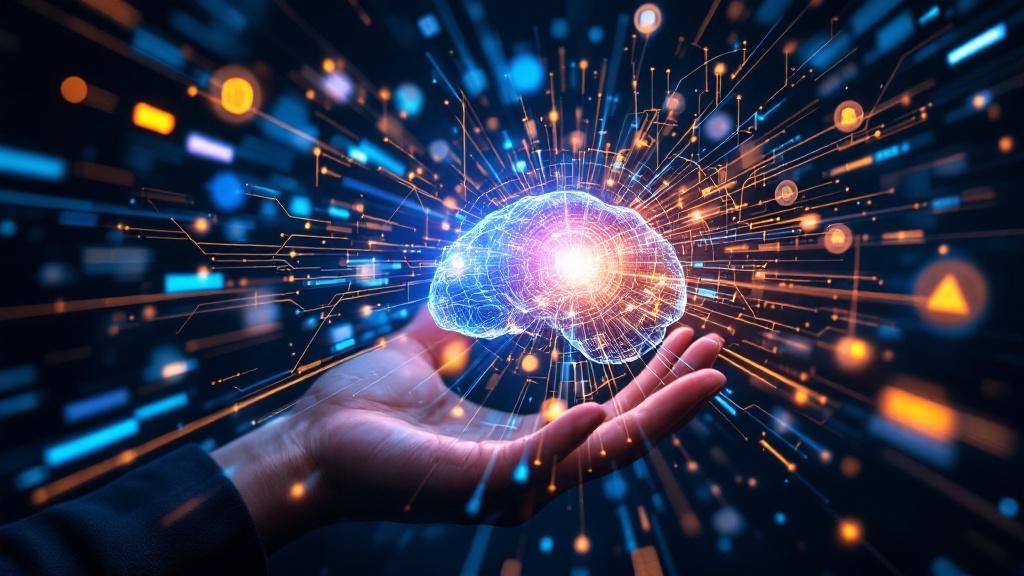
The fusion of artificial intelligence with gaming is no longer a futuristic concept. In 2025, it's the new standard. From creative ideation to live gameplay, AI is transforming how games are imagined, developed, and played. As the gaming industry continues to evolve, AI isn't just streamlining production workflows—it's redefining what’s possible.
Game developers and creators are increasingly using AI to push creative boundaries, delivering experiences that adapt, learn, and evolve in real time. This dynamic shift is not only making development more efficient, but also delivering deeper, more immersive storytelling.
AI is fundamentally changing the way games are designed. By leveraging vast datasets and predictive modeling, developers can create game environments that respond to player behavior, crafting narratives that adjust in real time.
AI-driven story engines help writers build branching narratives that evolve based on choices made during gameplay. These tools can analyze popular tropes and themes across genres, then recommend or even generate compelling arcs that resonate with players emotionally.
In 2025, successful game franchises are those that use AI to enhance player agency. When storylines adapt and characters evolve based on player decisions, it fosters a sense of ownership and deeper engagement.
The rise of specialized AI tools has redefined the developer experience. Here's how:
These tools allow creators to spend less time on repetitive tasks and more time pushing creative boundaries. They also enable smaller studios to compete with AAA titles by increasing efficiency and lowering production costs.
AI is revolutionizing the player experience by creating more lifelike, intelligent, and responsive gaming worlds. In 2025, we see a trend toward hyper-personalization:
This kind of interactivity moves gaming away from static storytelling and toward a responsive, co-creative experience.
To stay competitive, game studios need to be fluent in the AI technologies shaping the industry:
Mastering these technologies doesn’t just future-proof development pipelines—it enables innovation that resonates with modern players.
A look at notable implementations highlights AI’s influence:
These examples show that AI can deepen emotional engagement, expand game worlds, and deliver emergent experiences that captivate players for hundreds of hours.
As creators look to incorporate AI into their projects, they face the dual challenge of integrating new technologies while maintaining creative control. That’s where industry expertise becomes invaluable.
Edge Of, a leader in the emerging tech and media space, supports game developers with forward-thinking strategies for AI integration. From media production to technology partnerships, they help bring groundbreaking ideas to life in a way that retains human creativity and enhances it with AI’s potential.
Artificial intelligence is no longer a novelty in gaming. It’s the engine driving the next evolution of interactive entertainment. From more immersive gameplay to streamlined development and emotionally resonant storytelling, AI is at the center of what’s next.
For developers, creators, and studios aiming to push boundaries, the message is clear: adapt with AI or risk being left behind. With the right tools, strategies, and partners, the future of gaming isn't just playable—it's unforgettable.
How is AI used in modern game development?
AI assists with content generation, adaptive storytelling, automated testing, and player behavior analysis to streamline and enhance the game development process.
What are the most impactful AI tools for game developers in 2025?
Tools for procedural content generation, natural language processing, and machine learning are critical in modern development pipelines.
Can AI improve the player experience?
Yes. AI allows for personalized gameplay, smarter NPC behavior, and evolving narratives that respond to player input.
What are examples of successful AI integration in games?
Titles like "Middle-earth: Shadow of Mordor" and "No Man's Sky" showcase how AI enhances immersion and expands gameplay possibilities.
How can smaller studios benefit from AI?
AI tools reduce the need for large teams by automating routine tasks and providing scalable solutions for ambitious game designs.
Get exclusive insights into the ever-evolving worlds of Web3, along with exciting previews of upcoming projects and giveaways. Engage with the future today.
Subscribe Now